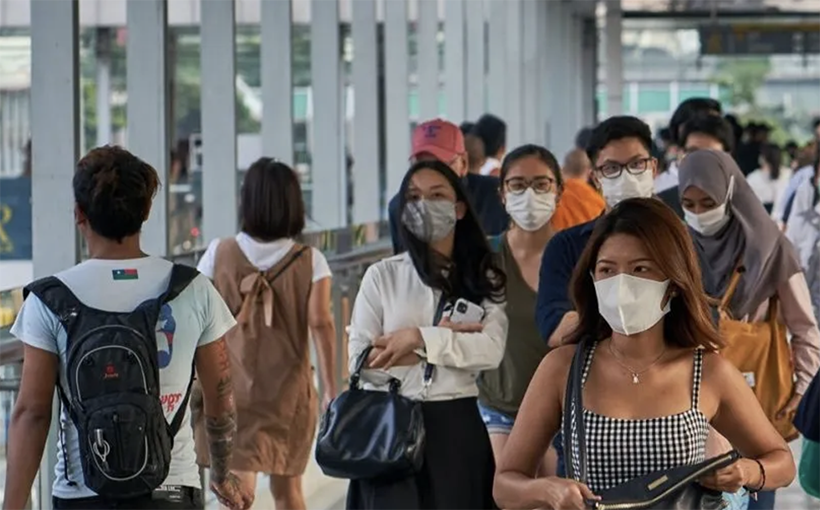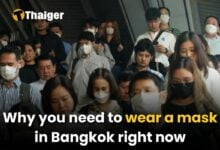New variant detected in Thailand, doctor calls out CCSA for under-reporting infections

The latest sub-variant of the Covid-19 virus, BA 2.75, has been detected in the southern Thai province of Trang.
Like BA.4 and BA.5, the more recent BA. 2.75 sub-variant is a more transmissible sub-variant of the Omicron strain. The new sub-variant was first detected in India in early June and had already spread to 14 other countries, including Japan, Germany, the UK, Canada, the US, Australia, and New Zealand.
Singapore recently confirmed its first two cases of BA.2.75, from passengers returning from India on July 17. They were asymptomatic and recovered by themselves in isolation. The Singapore Ministry of Health says it had not found any evidence that BA.2.75 caused severe illness, at this stage.
Even though BA. 2.75, nicknamed “Centaurus”, is thought to be highly contagious and capable of “vaccine evasion”, as well as immunity from previous infections, it remains unknown if the mutation causes more serious disease than other variants.
Dr Benjamin Schwessinger from the Australian National University says that s recent study suggests that BA. 2.75 is less immune evasive than BA.4/5 with previous Omicron infection and vaccination.
“At the same time, the study found that it is more immune evasive in individuals with prior Delta infection. Hence the growth advantage of BA.2.75 might very well be population dependent.”
US virology expert Matthew Binnicker, the director of clinical virology at the Mayo Clinic in Rochester says it is still really early on for us to draw too many conclusions.
“But it does look like… the rates of transmission are showing kind of that exponential increase.”
The Thai Centre for Medical Genomics announced yesterday that the Omicron sub-variant was detected in the southern province of Trang in a sample collected for examination on June 28. They said that the BA.2.75 variant had about 90 mutations when compared with the original Wuhan strain of the coronavirus.
“It is, therefore, likely to avoid the immunity that has developed from infections by previous variants, and to resist the vaccines that were created for the original Wuhan virus.”
Meanwhile, Triam Udom Suksa Pattanakarn School, locally known as Triampat, located between Bangkok’s city centre and Suvaranabhumi Airport, is suspending onsite classes and returning to remote learning next week after 910 of its students were recently infected by Covid.
It is the latest large school forced to revert to online classes because of a sharp rise in accumulated infections among students.
Last week, Bangkok Christian College announced it was resuming online classes after 688 students and 70 teachers and staff were infected with Covid-19.
Chulalongkorn University Associate Professor Dr Thira Woratanarat goaded Thai health officials yesterday with a Facebook post… “2,886 > estimated 96,200” suggesting that the official published numbers from the CCSA were vastly under-reporting the true situation.
In the post, he said the number of deaths in the country on Tuesday “was 14th in the world and fourth highest in Asia”.
“Wearing face masks properly is necessary to reduce the risk of getting infected.”
Speaking about the latest BA. 2.75 variant, the doctor said, “it hasn’t spread widely to other countries as yet and most cases are in India”.
“Just being careful could reduce the risk of becoming infected from any variant”.
SOURCES: Thai PBS World | 9News | BBC
Latest Thailand News
Follow The Thaiger on Google News:


























